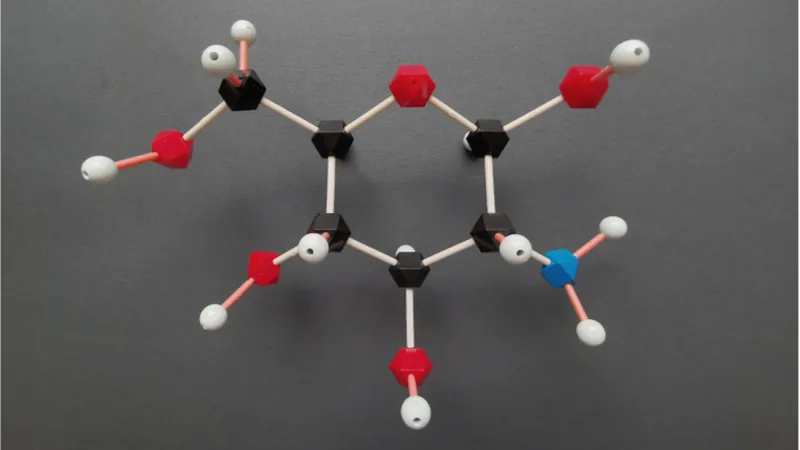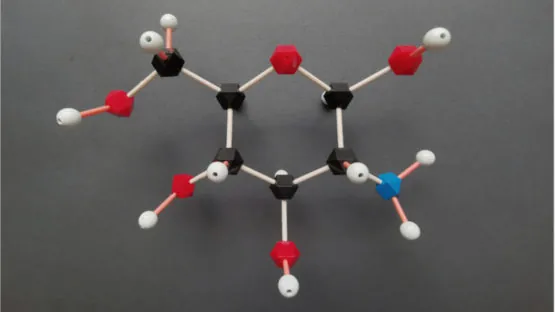It is one of the most commonly used supplements frequently taken to address joint pain, but there might be more to this dietary supplement than first meets the eye.
Glucosamine was originally discovered during the 1960s in Italy by pharmacologist Professor Luigi Rovati. Glucosamine is one of the most commonly used dietary supplements and is typically taken to help with the joint pain and inflammation associated with aging.
Glucosamine is a polysaccharide that is found naturally in cartilaginous joint tissues, bones, skin, ligaments, and nails, and it is involved in protein and lipid synthesis. In the context of joints, synovial fluid contains glucosamine and occupies the space between joints, helping to reduce the friction of joint surfaces.
Despite it being frequently taken for arthritis, the evidence for its effectiveness is limited, although, there is data for it being anti-inflammatory, as suggested by the results of a randomized clinical trial in 2015 [1].
However, glucosamine supplementation seems to correlate with lower all-cause mortality and other mortality risks, such as cardiovascular disease (CVD), cancer, respiratory and digestive diseases. A recent analysis published in the journal BMJ showed that glucosamine supplementation conveys around a 15% reduction of all-cause mortality [2]. This is a considerable amount when compared to other lifestyle interventions as well as other supplements. The data gathered is from a large number of people, and the trend of reduced mortality is unmistakable.
This population-based prospective cohort study included 495 077 women and men (mean (SD) age, 56.6 (8.1) years) from the UK Biobank study. Participants were recruited from 2006 to 2010 and were followed up through 2018. We evaluated all-cause mortality and mortality due to cardiovascular disease (CVD), cancer, respiratory and digestive disease. HRs and 95% CIs for all-cause and cause-specific mortality were calculated using Cox proportional hazards models with adjustment for potential confounding variables.
Regular glucosamine supplementation was associated with lower mortality due to all causes, cancer, CVD, respiratory and digestive diseases.
Conclusion
The exact reasons for this correlation with the reduction of various mortality risks is as yet unknown, but given the large patient group in this and in other analyses along with the popularity of this supplement, it is impossible to deny that there is a definite trend here. Out of all the popular supplements, glucosamine appears to have by far the most significant influence on all-cause mortality.
We are not suggesting that you take this supplement, but given that it is cheap and freely available with an excellent safety profile, it may be worth your consideration and further research to evaluate if you wish to or not.
Literature
[1] Navarro, S. L., White, E., Kantor, E. D., Zhang, Y., Rho, J., Song, X., … & Lampe, J. W. (2015). Randomized trial of glucosamine and chondroitin supplementation on inflammation and oxidative stress biomarkers and plasma proteomics profiles in healthy humans. PloS one, 10(2), e0117534.
[2] Li, Z. H., Gao, X., Chung, V. C., Zhong, W. F., Fu, Q., Lv, Y. B., … & Li, F. R. (2020). Associations of regular glucosamine use with all-cause and cause-specific mortality: a large prospective cohort study. Annals of the Rheumatic Diseases, 79(6), 829-836.



